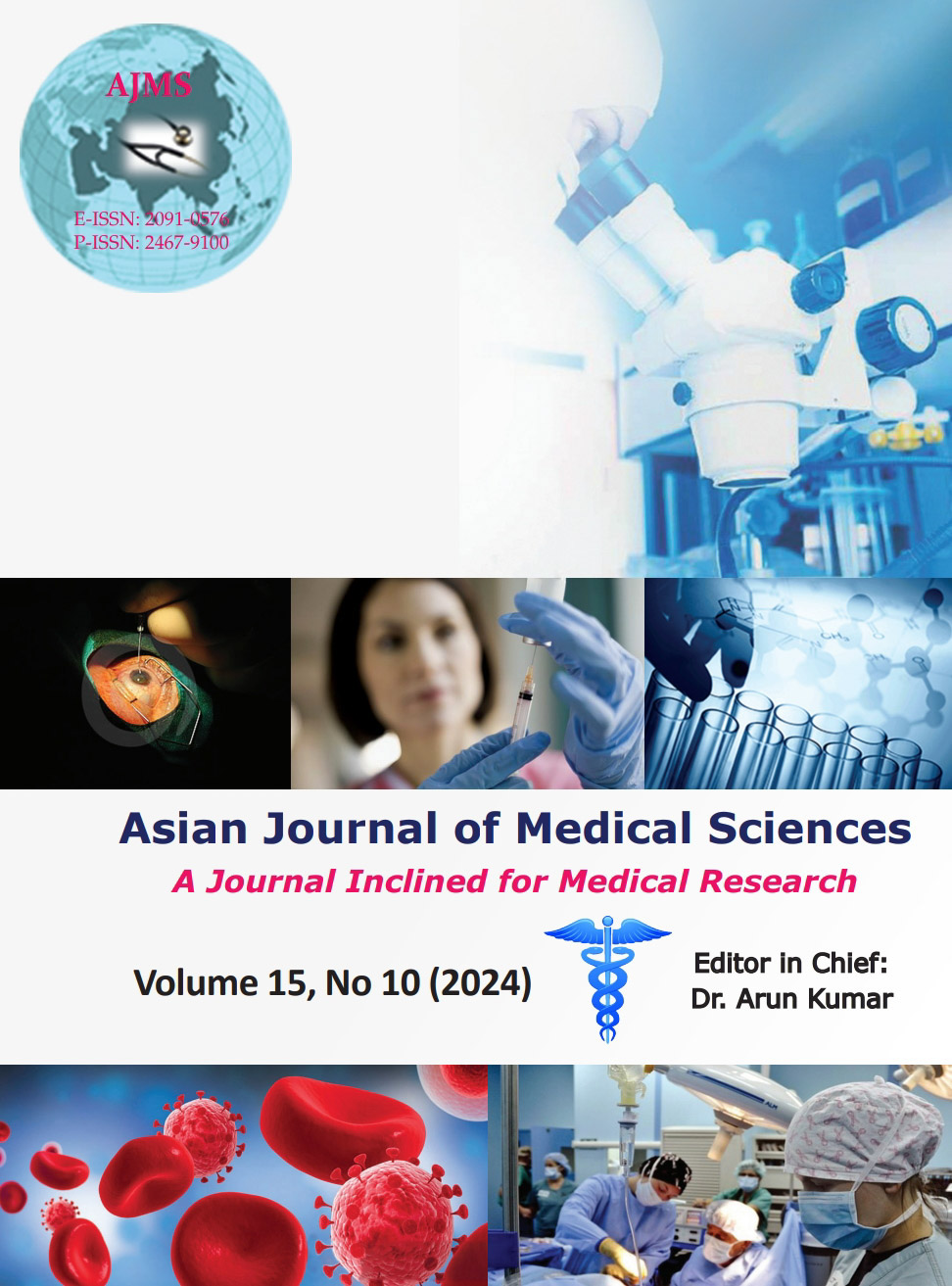Impact of baseline body mass index on antidepressant response: A study in newly diagnosed patients at a tertiary care center in Kolkata
Keywords:
Depression; Obesity; Body mass index; Antidepressant responseAbstract
Background: Depression, affecting 350 million globally, poses significant morbidity and mortality. The correlation between major depressive disorder (MDD) and obesity is noted, with studies indicating poorer treatment outcomes among obese individuals. Measuring weight and body mass index (BMI) could aid in predicting depression treatment outcomes, influencing drug efficacy due to their ease of measurement, amid the shared public health burden of MDD and obesity.
Aims and Objectives: The aims and objectives of the study are to evaluate baseline BMI’s impact on antidepressant response in newly diagnosed outpatient department (OPD) patients at a tertiary care center.
Materials and Methods: This longitudinal observational study was conducted with OPD patients at a tertiary care center, aged 18–65 years with newly diagnosed MDD. Assessment tools included the Diagnostic Criteria for Research accompanying the ICD-10, the Hamilton Rating Scale for Depression, and physical measurement devices. Sample size determination considered BMI groups: Normal to underweight (N1=120), overweight (N2=120), and obese (N3=70). The methodology involved patient history, examination, and follow-up assessments after 6 weeks, analyzing antidepressant response statistically.
Results: Obese patients exhibited reduced treatment response rates compared to normal and overweight counterparts. Responders had lower mean BMI. Gender disparities in obesity prevalence were noted. Limitations: The study’s limitations include a small sample size of 310 cases, single-center design, and potential selection bias in a tertiary care setting.
Conclusion: The findings underscore the complex relationship between BMI, depression severity, and treatment response. Obese individuals demonstrated higher initial depression scores and poorer treatment response, echoing previous research. The study highlights the need for personalized treatment approaches that consider individual BMI levels to optimize depression management strategies effectively.
Downloads
Downloads
Published
How to Cite
Issue
Section
License
Copyright (c) 2024 Asian Journal of Medical Sciences

This work is licensed under a Creative Commons Attribution-NonCommercial 4.0 International License.
Authors who publish with this journal agree to the following terms:
- The journal holds copyright and publishes the work under a Creative Commons CC-BY-NC license that permits use, distribution and reprduction in any medium, provided the original work is properly cited and is not used for commercial purposes. The journal should be recognised as the original publisher of this work.
- Authors are able to enter into separate, additional contractual arrangements for the non-exclusive distribution of the journal's published version of the work (e.g., post it to an institutional repository or publish it in a book), with an acknowledgement of its initial publication in this journal.
- Authors are permitted and encouraged to post their work online (e.g., in institutional repositories or on their website) prior to and during the submission process, as it can lead to productive exchanges, as well as earlier and greater citation of published work (See The Effect of Open Access).




